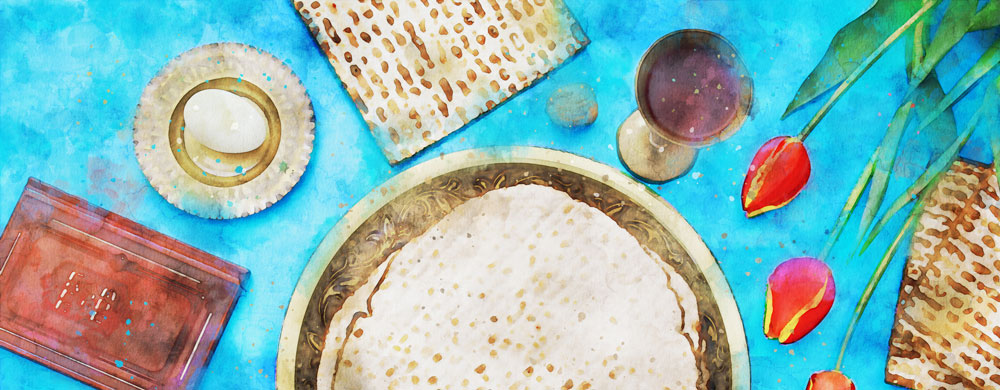Community Blog Passover During a Pandemic is An Act of Resilience And Hope

At the seder meal we ask, “How is this night different from all other nights?” This year, we have many more answers than we normally do. Everything feels different. Many of us are filled with anxiety and uncertainty, scarcity and fear around health concerns and financial (in)security. It seems hard to wrap our minds around having a joyous feast when so many of us are just trying to make sure we have our basic needs met and are trying to stay healthy or care for loved ones. We will experience Passover in a new, pared down, simpler way. Rather than celebrating with traditionally large groups and large meals, we’ll be home with immediate family or alone, perhaps connecting over Zoom. We’ll make do with the food we have. It will be very different this year in so many ways, but Passover at its core will still remain.
Our Passover symbols and themes are complex and hold contradictions, fitting for a time like this. At the seder we hold space for and embrace the dualities of slavery and freedom, confinement and expansiveness, life and death, bitterness and sweetness. Matzah, the flat dry unleavened bread we eat at the seder meal is both the bread of affliction and the bread of freedom and redemption. The charoset, the sweet mix of nuts and fruits, is delicious yet symbolizes the mortar with which the ancient Israelite slaves built the pyramids. The sting of the marror, the bitter herbs, is combined with the sweetness of the charoset. The karpas, the fresh greens, are a sign of spring, are dipped in salt water, a symbol of our tears. Beitzah, the roasted egg symbolizes both rebirth and sacrifice, the cycle of life and death and the life that goes on even after death. And so on…
I believe that in every generation, the Jewish community has had to find ways of celebrating Passover in times of scarcity and uncertainty. This is not new, even if it is new for us individually. Every year we read the Torah and experience the holidays through the lens of our own lives and whatever we are going through. This year, these themes take on new meaning in the wake of the Covid-19 Pandemic. Celebrating Passover in difficult times and circumstances has always been an act of resilience and hope.
I am holding space for all of these emotions and feelings, all of these themes and symbols, all of these dichotomies and contradictions. I pray for the health and safety of all people. I offer gratitude to the health care providers, care givers, delivery people, grocery store workers and everyone who is at risk as they are helping others. I offer my virtual support to those trying to work from home and take care of their kids at the same time, to those stuck in quarantine in an unsafe situation, and to those struggling from the economic and financial blowback of the pandemic, and sympathy to those whose loved ones are sick or dying.


